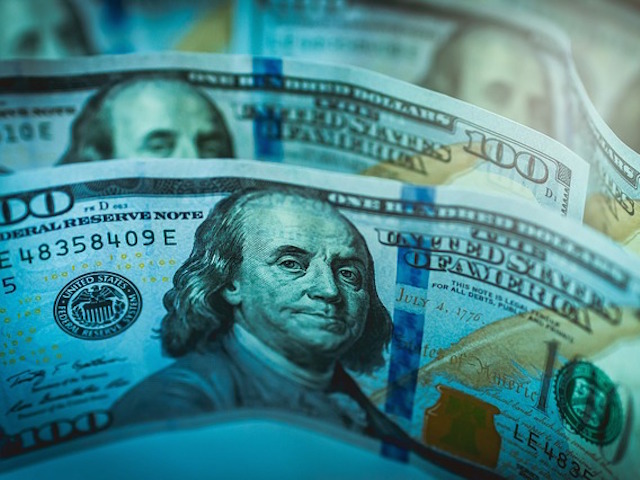While traveling within the U.S., no cash declaration is necessary, so no matter what amount of money you have on you, there’s no need to inform anyone. Of course, when traveling internationally this is not the case, so it’s absolutely crucial for traveling APs to make sure they understand the policies regarding currency declaration.
Different countries have different laws regarding what to do when entering and leaving their country with cash, but most require a currency declaration when you have over a certain amount. While the specifics of each country’s policy can get a bit sticky, the general rule is that amounts exceeding a value comparable to $10,000 USD (e.g., €10,000 in the E.U.; ¥1,000,000 in Japan) must be declared when entering or leaving the country.
Note that this also applies to mixed currency. If you have $6000 and €5000 on you, that requires a declaration, even though you have less than 10,000 units of each individual currency.
For now, I’m going to focus on currency declarations leaving and entering the U.S., but the information is similarly applicable to trips originating from and going to other countries. If you’re familiar and comfortable with the U.S. currency declaration process, you’ll have no problem managing elsewhere.
When traveling to and from the U.S. with over $10,000 in cash, you are required to declare the money upon leaving, and also upon returning. You are required to fill out a FinCEN 105 form and turn it in to a customs agent for declaration.
This form is easy to fill out, and you can obtain one beforehand at FinCEN.gov. I strongly suggest doing so, as you’ll sometimes get incomplete or incorrect information from customs agents, and this can be disastrous for someone traveling with a large amount of cash. Be prepared.
I’ve been in situations where I was told I didn’t need to fill out a currency declaration form when leaving—only when returning. All the while, I was standing next to a huge sign that said I must declare currency when leaving or my money would be subject to seizure.
In these instances, I made sure to find someone who knew what was going on, gave them the form I had already prepared, and documented that I submitted it to them by either getting a stamped copy or by snapping a picture of the form after it had been approved.
You may wonder why I would go to the trouble if a customs agents had told me that I didn’t need to declare. The reason is because a problem can arise when you declare upon returning. If it comes up that you didn’t declare upon leaving, you could be put in a very bad situation.
I had one particularly green customs agent grill me about this exact situation, as he either couldn’t operate his computer correctly or someone didn’t file my exit declaration correctly. In either case, I wasn’t at all worried, as I had a copy of the completed FinCEN105 I turned in a week earlier.
Having a currency declaration form already completed when crossing a border by car is also useful. Customs agents will have your car searched and you interrogated if they think anything shady is going on. Having a completed declaration form to hand them before they can ask how much money you’re carrying can have a disarming effect. It shows them that you know the laws and that you’re eager to abide by them.
If you’re traveling with someone who is not immediate family and you each have under $10,000 but over $10,000 collectively, you are not required to declare this. However, if the person you’re traveling with is an immediate family member, you must declare. If you’re traveling with a domestic partner in the same situation, you must also declare.
What’s a domestic partner? The designation is open to interpretation, and rest assured that customs agents will err on the side of caution. If you’re traveling with a boyfriend, girlfriend, fiancée, or someone else who you live with and can plausibly be described as being in a domestic partnership with, then you shouldn’t try anything clever—just declare the money and avoid a major potential headache.
Another potential problem scenario to be aware of involves exiting an airport terminal and re-entering through security without re-declaring your currency.
For example, let’s say you leave Country A and your plane stops for a layover while still in Country A, with the next stop in Country B. Typically, you’ll be routed to customs for Country B, where you complete your declaration form for currency entering the country.
So far, so good, but if you leave the international terminal for Country B and have to re-enter through security, for whatever reason, you must re-declare your currency to Country A!
Since declarations often take place upon entering a country with currency—the purpose for the whole thing is ostensibly to curb money laundering and terrorist funding—it’s very easy to find yourself in a situation where you were not required to declare upon leaving. This doesn’t usually present a problem as long as you stay in the proper airport terminals, but if you leave and try to re-enter, you will have a problem. Be aware of what countries you’ve declared to before crossing any borders or moving between airport terminals.
The bottom line is that understanding and following currency declaration rules while traveling internationally is an absolute must. You may resent being treated like a potential criminal while interacting with customs agents, but having your money confiscated with little recourse is far worse.




May 16, 2017 @ 3:03 am
Great article. If you wish to continue on the subject of money and international travel, I would recommend writing about how to be adequately bankrolled for overseas trips. Not all foreign casinos use the same currency at the tables as their national currency, and if currency exchange is necessary, a lot of EV can be immediately wasted if done improperly. For example, it’s good to know the exchange rate at the casino cage and if they allow exchange back into your original currency at the same rate. Some small casinos simply will not accept foreign bank notes, which recently caught me off guard and halted my play early due to lack of bankroll in the “right” currency.
June 7, 2017 @ 8:00 pm
A few countries will not legally allow you to leave with more money than declared on arrival, so be prepared with a plan to handle any winnings.
It’s also worth mentioning that most foreign casinos and exchanges will not accept USD that are marked or torn even slightly. New $100 dollars bills are generally preferred but they also tear easily at the blue stripe, rendering them worthless.